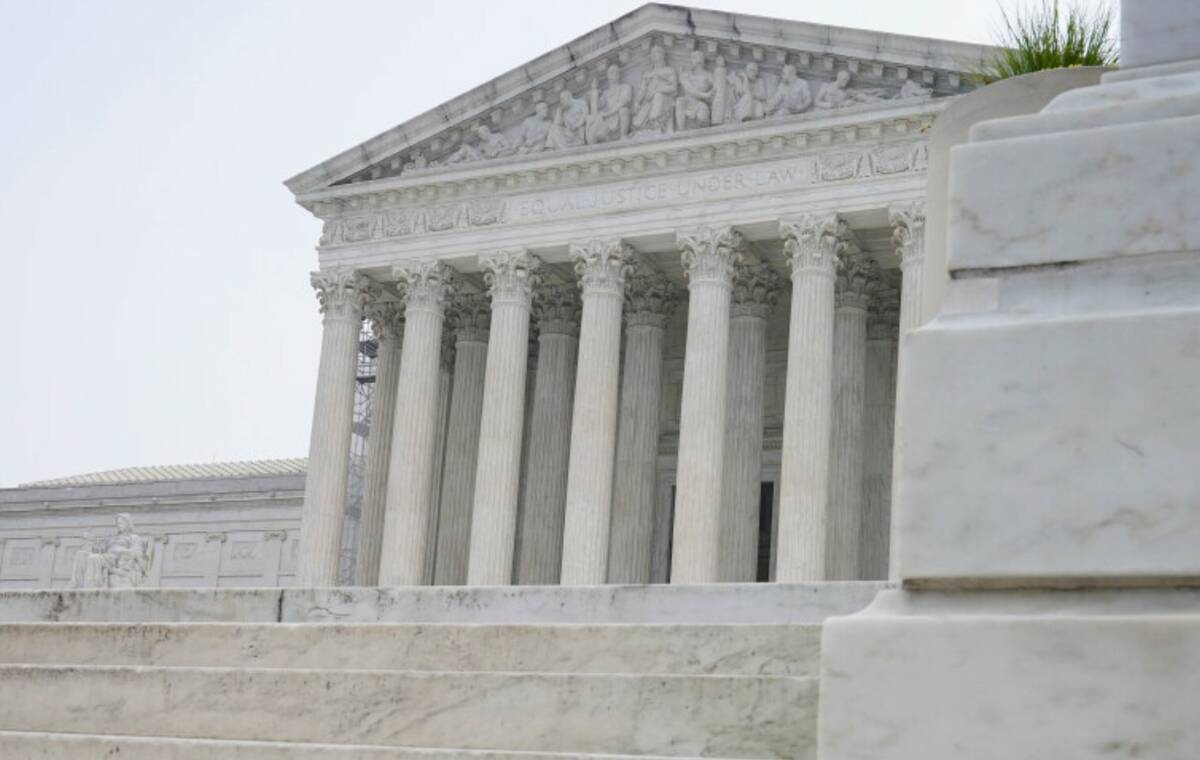‘No anticipated impact’: UNLV, UNR react to affirmative action ruling
Nevada’s two public universities say they’re not expecting an impact to their admissions practices following the U.S. Supreme Court’s decision Thursday to overturn affirmative action.
Affirmative action admissions practices have aimed to address inequities and barriers for students from minority groups to getting into elite colleges and universities.
A UNLV spokesperson said in a statement Thursday that the Supreme Court’s decision — which says race can’t be used as a factor in college admissions — “will not fundamentally impact UNLV’s open-access admissions policy.”
“All are welcome at UNLV and the university is in a richly diverse community and we’re proud to rank among the nation’s most diverse universities,” the university said.
“We’ll continue to review the court’s ruling to ensure all university policies are in compliance with any updates to federal law, and we remain committed to the ideals of inclusion, diversity, and equity so that every member of our Rebel family feels a strong sense of belonging,” according to the statement.
The court’s conservative majority effectively overturned cases reaching back 45 years in invalidating admissions plans at Harvard and the University of North Carolina, the nation’s oldest private and public colleges, respectively.
The University of Nevada, Reno, said in a statement that it does not use race or ethnicity as “built-in factors of consideration for admissions.”
“Therefore, the recent ruling should have no anticipated impact on the University’s admissions process,” the university said.
Nevada State College in Henderson, which will be renamed Nevada State University effective Saturday, said it was following the decision closely along with the rest of the country.
“Education must remain a beacon of hope for those seeking to create opportunity and change their economic standing,” the school said. “Nevada State University remains undeterred and unapologetic in our work to increase equitable access to education, an inclusive culture, and a diverse employee and student base. Our progress must continue as an institution, as a state, and as a country.”
Nevada’s higher education system includes eight public colleges and universities that serve about 100,000 students.
The Nevada System of Higher Education’s Board of Regents handbook includes a statement about student admissions to its schools, saying they “shall not discriminate on the basis of a person’s age, disability, ethnicity, gender, national origin, race, color, religion, sexual orientation, or gender identity or expression.”
The handbook also outlines specific requirements for university and Nevada State College admission, including benchmarks for grade-point average and SAT or ACT scores.
It says, though, that students who don’t meet those benchmarks “may, under procedures established by the university, be admitted through other criteria.”
The handbook outlines what those are: a “combination of test scores and grade point average that indicate potential for success,” special talents or abilities such as in performing arts or athletics, “other evidence of potential for success,” improvement in high school performance, “overcoming adversity or special hardship” or “other special circumstances.”
Students who graduate with a transferable associate degree from an NSHE community college are admitted to the state’s universities or Nevada State College regardless of GPA, the handbook states.
For community colleges, applicants who are pursuing a degree or certificate must be a high school graduate or equivalent, or a “qualified international student,” according to the handbook.
Opposition to the ruling
The American Civil Liberties Union of Nevada — along with the ACLU of Massachusetts and North Carolina — filed an amicus brief in the case in August 2022 urging the Supreme Court to uphold the ability of schools to consider race in admissions.
ACLU of Nevada Executive Director Athar Haseebullah on Thursday called the decision “another troubling ruling” from the Supreme Court.
“The movement against affirmative action is part of a larger effort to rewrite our nation’s history, erase the lived experiences of racial minorities, especially Black folks, and obstruct our full and equal participation in our democracy,” he said in a statement. “Nevada’s colleges and universities are incredibly diverse, but underrepresented student groups should have access to opportunities at elite universities across America as well.”
Rep. Steven Horsford, D-Nev., released a statement voicing opposition to the decision.
“For decades, affirmative action has opened doors to segments of our population, from white women, to Black, Latino, Asian, and Tribal youth, who had persevered as barrier after barrier came in their path, including many Nevadans,” he said.
According to Horsford, the court is saying those who are wealthy, have family who’ve gone to higher education institutions and have the privilege of attending elite prep schools “can have an advantage in getting a higher education, while those who have succeeded despite centuries and decades of institutional abuse and racism, from slavery to internment camps to forced deportations of American citizens, will struggle to compete with the wealthy and elite.”
The Associated Press contributed to this report.
Contact Julie Wootton-Greener at jgreener@reviewjournal.com or 702-387-2921. Follow @julieswootton on Twitter.

















